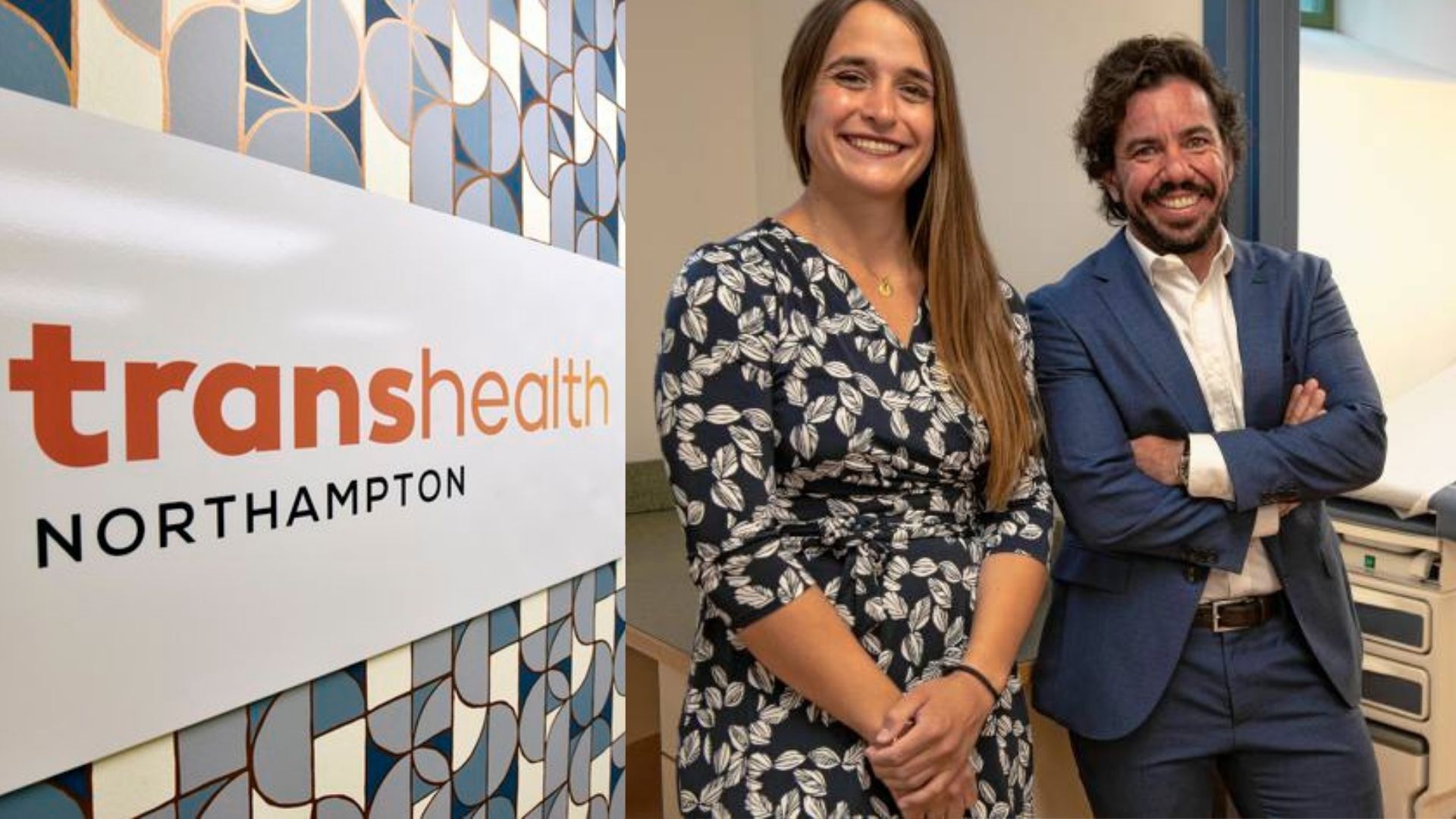When I first learned about trans health, the country’s first full-service health clinic specifically created by and for the trans community, a few things surprised me. The first was that nothing like Transhealth existed before this year.
“You’d have expected something like this to exist in Northampton already.” Says Dallas Ducar, Transhealth’s Chief Executive Officer, who I spoke to shortly after the clinic opened in April. “You’d expect it already exists in the United States, but it doesn’t.”
The fact that the first trans clinic in the country is located in Northampton, Massachusetts makes a lot of sense if you know anything about Northampton, Massachusetts. Described (famously) as a “strange town where men aren’t wanted” by the National Enquirer in1991, Northampton is home to Smith College and located in the Pioneer Valley’s “knowledge corridor. It’s a place where the one large parking garage in town boasts the slogan: “where the coffee is strong and so are the women.” It’s also my hometown. When I was growing up there in the 90s and early 2000s, however, the prominence of trans and gender-nonconforming folks was hardly celebrated. The joke in those days was that you enter Smith as a cis woman and leave there as a trans guy—a nod to the bizarre gender politics that led a school famous for its transmale output to ban trans women from entry for decades.
The visible existence of trans folks, however, has always been a part of Northampton’s beauty. Now, the town is starting to actually serve and celebrate its trans citizens.
“Our founder [Perry Cohen] always dreamed of setting up a comprehensive clinic in Western Massachusetts,” Ducar told INTO. “Before Transhealth, he’d have to drive three hours out of town to find certain types of gender-affirming care.
So Cohen, along with his co-parent Brooks Bull, decided to create one. First, they started with a study of the local needs of Northampton’s trans community, known as the PATH project. From a survey of around 300 participants taking into account social determinants of overall health–factors like socio-economic status, race, ethnicity, transportation access, and language–they were able to learn about what their own community was lacking. 54 percent of participants cited lack of gender-affirming providers as a barrier to finding primary care. 40 percent confessed having to actually teach their primary care doctor about what it means to be trans.
Once the Transhealth team had a sense of what was lacking in trans-specific healthcare in the pioneer valley, they found a way to offer it.
“We are the first comprehensive, independent trans healthcare clinic in the country,” Ducar explains. “What that ‘independent’ means is that 100% of our budget is dedicated to trans and gender-nonconforming folks. We’re not beholden to any larger academic medical center or some larger FHC with different stakeholders.”
They’re also comprehensive, which means they provide trans Northamptoners with more than access to HRT and gender-confirming care. Trans folks who are simply searching for a primary care where they won’t be misgendered or treated like a medical curiosity can go to Transhealth and avoid the traditional pitfalls of the gendered primary care experience.
“We’re led by the trans community, for the trans community,” Ducar says.
It’s not just for Northamptoners, either. Transhealth currently serves folks from Boston and its surrounding areas. People are willing to travel from Connecticut, New Hampshire, and Vermont to engage with a new healthcare model that doesn’t treat trans folksl ike an afterthought.
“We’re a nonprofit, so our vision is not profit-driven,” Ducar says. “That said, we still want to be a smart business and we want to show that transition care isn’t just something you donate to, it’s actually a really sustainable model.”
Transhealth wants to model how a successful trans-centered nonprofit can look, not only by providing healthcare and transition support, but by eventually opening the clinic up to broader communal services, such as weightlifting classes, tax prep seminars, and advocacy work.
“We believe our victories will extend far beyond gender-affirming care,” Ducar says. “We’re offering a real model, and pretty profound expression, of what teaching-centered care can. It’s the trans community showing America what healthcare can be.” ♦
Don't forget to share:
Help make sure LGBTQ+ stories are being told...
We can't rely on mainstream media to tell our stories. That's why we don't lock our articles behind a paywall. Will you support our mission with a contribution today?
Cancel anytime · Proudly LGBTQ+ owned and operated
Read More in Impact
The Latest on INTO
Subscribe to get a twice-weekly dose of queer news, updates, and insights from the INTO team.
in Your Inbox













